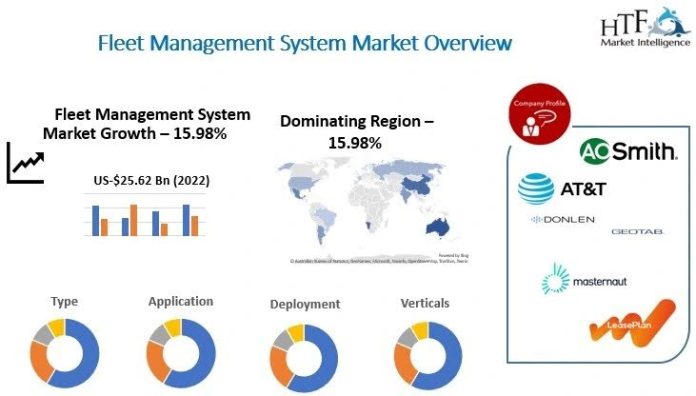Fleet management refers to the strategic coordination of a company’s vehicle operations to enhance performance, ensure compliance, reduce costs, and improve safety. Modern systems integrate telematics, AI, and cloud-based platforms to track vehicles in real-time, monitor driver behavior, manage fuel consumption, and support predictive maintenance, thereby streamlining operations across diverse transportation ecosystems.
These solutions are widely adopted across sectors like logistics, utilities, e-commerce, public services, and corporate mobility. Companies rely on advanced fleet technologies to handle vehicle scheduling, electrification planning, emissions tracking, and cost optimization while aligning with sustainability and regulatory goals. As businesses expand geographically and embrace electric vehicles, the need for scalable, intelligent, and interconnected platforms continues to grow.
Grosvenor’s partnership with Targa Telematics in June 2025 marks a major leap in proactive vehicle maintenance. The launch of Advanced Remote Connectivity (ARC) allows real-time data from each vehicle, such as odometer readings, battery levels, and dashboard alerts, to feed directly into Grosvenor’s OSCAR system. This not only reduces unplanned downtime and servicing delays but also empowers businesses with deeper operational visibility and cost control.
Fleetondemand, part of the FOD Mobility Group, introduced a new pool fleet management service also in June 2025. Integrated within its GT Suite platform, this solution simplifies the management of leased, rented, and company-owned vehicles across locations. By offering seamless booking and reporting tools alongside existing mobility services, it enhances fleet flexibility and promotes efficient resource allocation for multi-location enterprises.
In May 2025, Way Data Technologies secured €2.6 million in pre-seed funding to launch its Way Platform, addressing a crucial technology gap in fleet oversight. Prioritizing user-friendliness and modular integration, the platform supports fleet managers in executing electrification strategies, automating emissions reporting, and harnessing AI for operational optimization—responding directly to the shift toward digital-first fleet ecosystems.
Dynamon’s collaboration with Webfleet, announced in June 2025, brings forth tailored decarbonisation reports that answer key questions around vehicle transition, EV rollout plans, charger planning, and alternative fuels. This data-backed approach allows businesses to make informed sustainability decisions and aligns with global pressures for cleaner transport solutions.
Meanwhile, Samsara Inc. and Rivian have partnered to streamline electric fleet oversight. Their May 2025 integration enables fleet operators to access live data from Rivian’s commercial EVs via the Samsara platform. This move addresses the operational complexity of managing mixed and electric fleets, allowing real-time insight into Rivian vans and expanding the utility of Samsara’s Connected Operations® Platform.
Future Outlook
The fleet operations landscape is accelerating toward a future powered by electrification, AI, and integrated mobility platforms. As regulatory mandates tighten and cost pressures grow, businesses will continue to seek scalable, intelligent solutions that reduce emissions, improve efficiency, and offer deeper data insights. Collaborations across software, OEMs, and mobility innovators are expected to intensify, redefining how organizations manage, maintain, and decarbonize their fleets in the years to come.
About Author:
HTF Market Intelligence Consulting is uniquely positioned to empower and inspire with research and consulting services to empower businesses with growth strategies, by offering services with extraordinary depth and breadth of thought leadership, research, tools, events, and experience that assist in decision-making.


